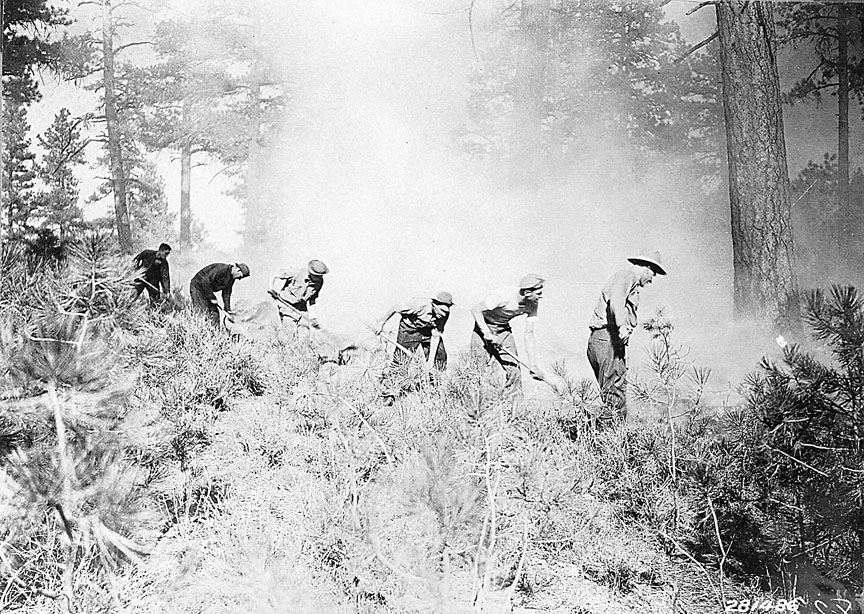- Catalog No. —
- OrHi 66328
- Date —
- 1934
- Era —
- 1921-1949 (Great Depression and World War II)
- Themes —
- Black History, Environment and Natural Resources, Government, Law, and Politics, Race, Ethnicity, and Nationality, Trade, Business, Industry, and the Economy
- Credits —
- Oregon Historical Society
- Regions —
- Cascades Willamette Basin
- Author —
- Unknown
CCC Fights Fire in Willamette National Forest
This photograph shows men digging a trench near a fire in the Willamette National Forest in about 1934. The men worked for the Civilian Conservation Corps (CCC), a New Deal program that employed young, single, unemployed men in land conservation projects during the Depression, between 1933 and 1942.
Several thousand young men came from around the country to work in Oregon’s forests, parks, and public lands. While most worked for state and national forest services, some participated in soil conservation and irrigation projects. Enrollees fought forest fires and built hiking trails, forest roads, fire lookouts, and picnic areas.
In 1940, Oregon had sixty-one CCC camps. Members lived in military-style barracks throughout the state during their six-month service periods. They received a monthly $30 stipend and participated in educational programs.
Nationally, the government segregated African American CCC members in separate camps. Eventually, some African Americans managed to join integrated camps, but few made it into leadership positions. The government enrolled Native Americans in a separate “Indian CCC” that was reservation-based.
Further Reading:
Hill, Edwin G. In the Shadow of the Mountain. Pullman, Wash., 1990.
Parman, Donald L. “The Indian and the Civilian Conservation Corps.” Pacific Historical Review 40:1 (1971):39-56.
Written by Kathy Tucker, © Oregon Historical Society, 2002.
